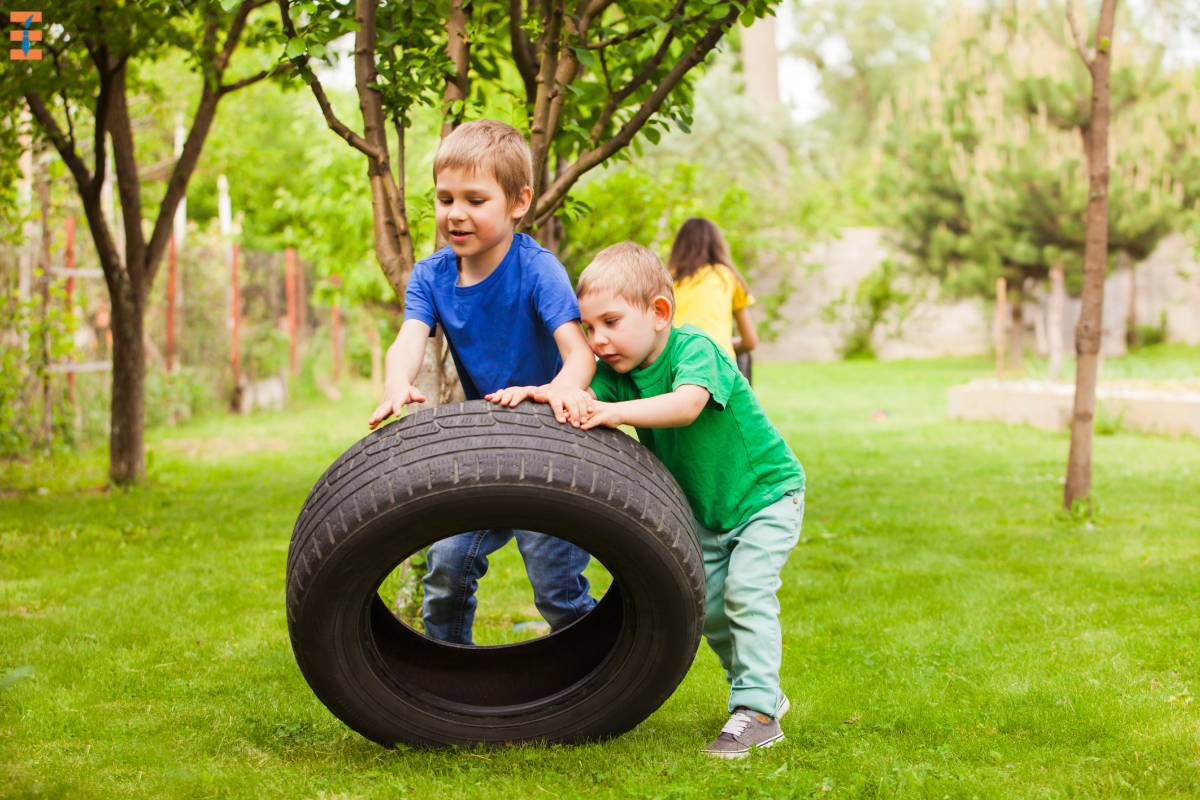In early childhood learning, the wave of weaving outdoor escapades into the curriculum, especially the whimsical realm of preschool outdoor games, is on the rise. The wise custodians of knowledge, both mentors and guardians, acknowledge the deep influence of nature on a fledgling mind’s growth. Within these verses, we embark on an exploration of the countless boons bestowed upon the little ones by venturing into the great outdoors, with a particular enchantment for the enchanting spells cast by preschool outdoor games upon the odyssey of learning.
Here are 9 Importance of Preschool Outdoor Games:
1. The Natural Classroom
Nature itself becomes a dynamic and ever-changing classroom when kindergarteners step outside. Unlike traditional indoor settings, the outdoors offers a rich tapestry of sights, sounds, and textures that stimulate a child’s senses. From the rustling of leaves to the warmth of sunlight, every element becomes a lesson waiting to be explored.
2. Physical Development

Preschool outdoor games play a pivotal role in enhancing the physical development of young learners. Activities such as running, jumping, and climbing not only build gross motor skills but also contribute to the development of coordination and balance. The natural, unstructured environment fosters movement and helps children develop spatial awareness, an essential aspect of their physical literacy.
3. Cognitive Growth
Engaging in outdoor activities stimulates cognitive growth by encouraging curiosity and exploration. The open-ended nature of the outdoors allows children to problem-solve, make decisions, and engage in imaginative play. Preschool outdoor games provide a hands-on approach to learning, allowing children to discover scientific concepts, mathematical relationships, and cause-and-effect relationships playfully and memorably.
4. Emotional Well-being
Nature has a remarkable effect on emotional well-being. The outdoor environment provides a sense of freedom, reducing stress and promoting emotional resilience. Preschool outdoor games create opportunities for social interactions, collaboration, and the development of interpersonal skills. Kindergarteners learn to navigate social situations, share resources, and build friendships in a natural setting.
5. Sensory Exploration
The outdoors serves as a sensory wonderland for young learners. Preschool outdoor games allow children to explore different textures, smells, and sounds, enriching their sensory experiences. Whether feeling the cool breeze, listening to bird songs, or touching various natural elements, these sensory encounters contribute to a child’s overall sensory development.
Also Read: Nature’s Classroom: Utilizing the Outdoor Environment as an Extension of Learning
6. Environmental Awareness

Early exposure to nature instills a sense of environmental awareness and responsibility. Preschool outdoor games provide a firsthand experience of the natural world, fostering a connection to the environment. This connection lays the foundation for future generations to appreciate and care for the planet.
7. Language Development
Outdoor settings provide a diverse and context-rich backdrop for language development. Preschool outdoor games encourage children to communicate, express their thoughts, and engage in storytelling. Nature becomes a source of inspiration for language exploration, with children describing their outdoor adventures, creating narratives, and expanding their vocabulary.
8. Creativity and Imagination

The freedom of the outdoors sparks creativity and imagination in young minds. Preschool outdoor games offer an unstructured space where children can invent games, role-play, and engage in imaginative scenarios. This creativity nurtures critical thinking skills and allows children to express themselves in ways that may be limited within the confines of a traditional classroom.
9. Academic Readiness
Contrary to the notion that outdoor activities detract from academic readiness, research suggests that exposure to nature positively influences cognitive development. Preschool outdoor games contribute to the acquisition of early literacy and numeracy skills through interactive and experiential learning. The outdoors provides a natural context for introducing mathematical concepts, understanding spatial relationships, and developing a foundation for reading and writing.
Conclusion
In the journey of early childhood education, the benefits of taking kindergarten outdoors, especially through engaging preschool outdoor games, are too significant to overlook. As educators and caregivers embrace the natural classroom, they empower young learners to develop holistically—physically, emotionally, cognitively, and socially. The outdoors, with its endless possibilities, becomes a playground for exploration, learning, and growth, ensuring that every child’s educational experience is enriched by the wonders of nature.










